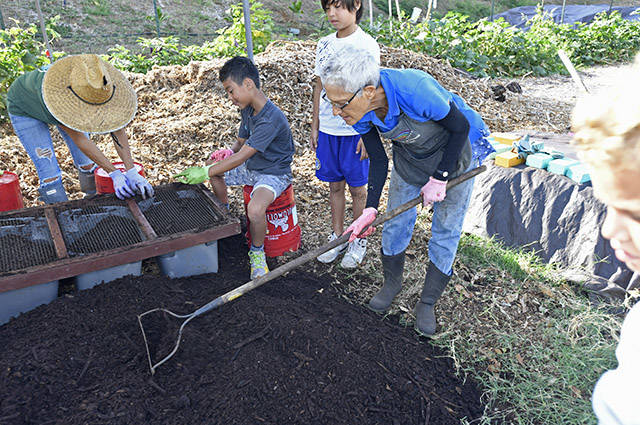A harsh life lesson, kids: Sometimes, even having the governor, Legislature and a new law in your corner just aren’t enough. Even something as simple as school composting to help the Earth is no match for maddening bureaucracy.
Instead of receiving nearly $300,000 for school-grown educational composting programs, as expected, the money instead went to engineering company Okahara & Associates. The state Department of Education contracted with Okahara “to assist in establishing the framework for a composting pilot program and campus composting guidelines.”
That’s a bitter disappointment for about nine public schools, whose principals submitted applications for what they thought were available funds for their school-run composting programs. After all, that seemed to be the intent of last year’s Act 207, allowing the DOE to “issue grants to establish composting grant pilot projects” and to create a composting working group.
But the DOE determined that the compost-program requests from the schools, each under a $25,000 cap, totaled about $197,000. And since multiple schools intended to work with the same vendor, aided by the nonprofit Windward Zero Waste School Hui, that added up to “parceling,” a no-no under state procurement law. Parceling is “the artificial division or intentional division of a purchase of same, like, or related items of goods, services, or construction into several purchases of smaller quantities, in order to evade the statutory competitive requirements.”
For goodness sake, these kids are not evading anything. To serve the intent of Act 207, Okahara should disburse the $285,000 to the schools’ composting programs; call it community benefits, call it being a solid corporate citizen. It’s just a shame that such an upbeat, positive initiative can get so mucked up.

